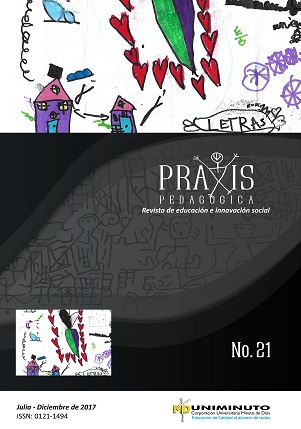Comparative study between creative methodologies: «checklist» and «teaching by curiosity», for the improvement of creativity from the natural sciences
Main Article Content
Abstract
Creativity in education is fundamental as it allows us to find new solutions to individual problems, to discover something new and to think differently from the pre-established. This makes it possible for us to adapt to changing and complex societies; therefore, the development of creative capacity is paramount. In this sense, this study intends to verify from the subject of Natural Sciences in the seventh grades of the Public Educational Institution Bosanova, if the application of creative teaching methodologies truly potentiates the creativity. For this purpose, a comparative pre-post-test study has been carried out among creative methodologies: «Checklist» and «Teaching by curiosity».The sample was made up of 86 students divided into two groups of equal numbers. A creative intervention program with different strategies was applied to both groups in order to observe and compare the final results obtained, and to identify the methodology that provides a creative increase of the students from the Natural Scences. We used EZAnalyze from Excel -Microsoft-, a statistical program for data analysis. The results obtained show an increase in creativity after applying the creative methodology in both groups. Although this increase was greater in one of the groups-group A-. In addition, the relationship between academic achievement and creativity in the two groups was analyzed, without this correlation being significant. The activities proposed using both methodologies contribute to the increase of creativity in the sample population. This can be understood from the evidenced observation in which students become proposers and curious people.





